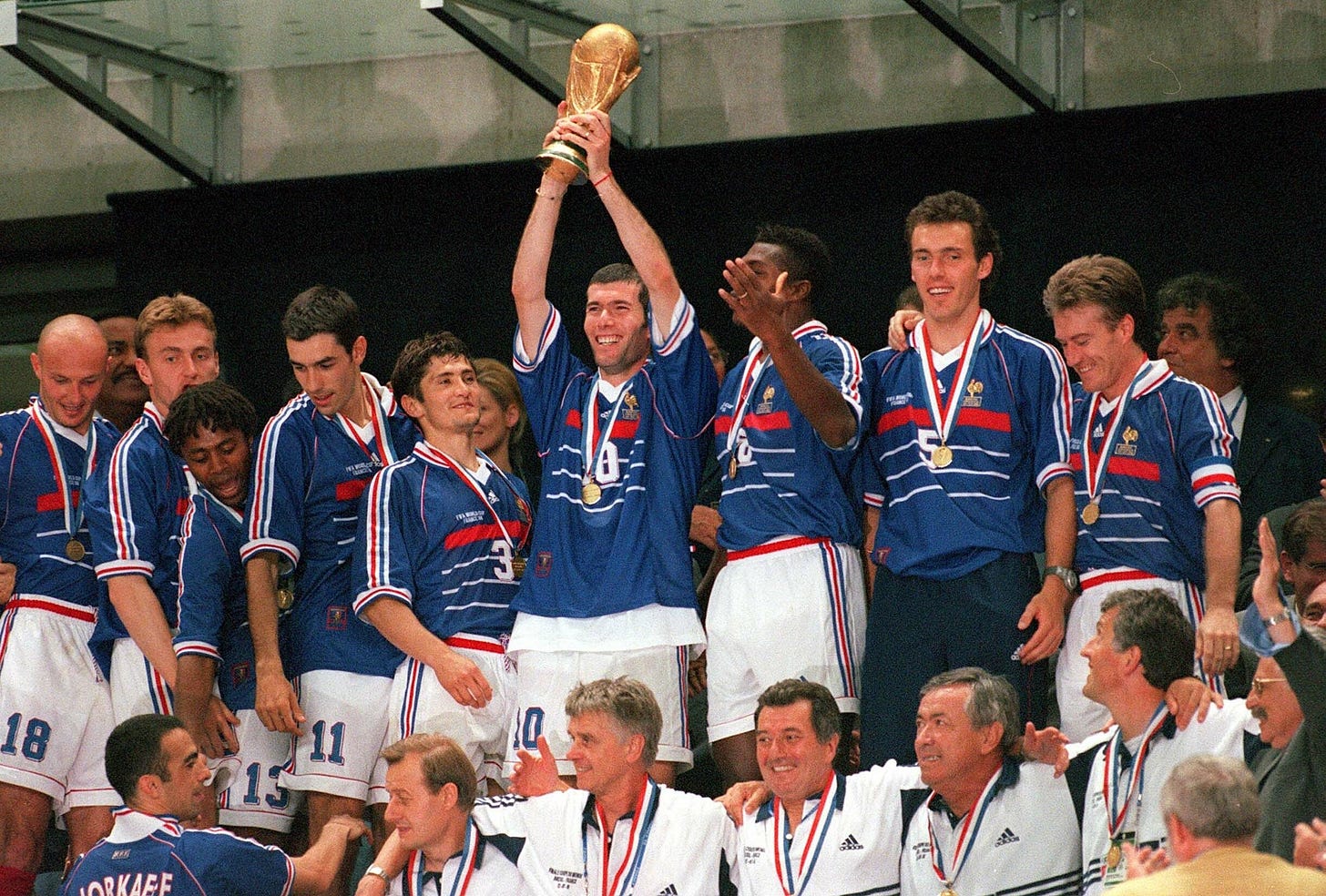World Cup Flashback: France 1998
The story of how Zidane et al changed history for French football
This is the third World Cup Flashback, a series looking at the tactics and approach of every World Cup winner since 1990. You can read the first two editions here and here.
We all look at the France side of 1998 with envy today, seeing those glittering star names, but it perhaps wasn’t seen that way before the tournament.
France hasn’t always enjoyed the same footballing success as some of its Western European peers. Les Bleus won their first significant title at Euro ‘84, played on home soil. France in that tournament were a Michel Platini-inspired delight, scoring a very impressive 2.8 goals per game. Platini himself – not even a striker – still holds the record for the most goals in a single European Championship tournament (nine), and this was back when only eight teams qualified.
France had sparkled in their own country before, but that had been the only thing worth celebrating. They didn’t even qualify for the 1990 and 94 World Cups meaning that, since they got to this one automatically as hosts, France hadn’t successfully navigated World Cup qualification for 12 years. In hindsight, Euro ‘96 was the start of the turnaround. New manager Aimé Jacquet didn’t have Eric Cantona due to suspension, so he began building the side around 24-year-old Bordeaux attacking midfielder Zinedine Zidane. Six of France’s starting eleven for the World Cup final started at least some of the games at Euro 96. Sometimes you can feel that a team is coming, even if they’re not quite there yet.
Jacquet thus came into the World Cup on home soil with a clear sense of his players and what he wanted to do. The first game against South Africa laid it out. Fabien Barthez of Monaco had become the established number-one goalkeeper after sitting on the bench at Euro 96. Parma’s Lilian Thuram was starting to earn his reputation as one of the world’s best right backs. Marcel Desailly had signed for Chelsea from AC Milan literally four days earlier and was right in his prime at age 30. Laurent Blanc of Marseille was a little older at 33, but had all the experience in the world. Bayern’s Bixente Lizarazu was an early frontrunner for the trend of attacking full backs, providing a perfect contrast to the more defensive Thuram on the other side.
Didier Deschamps of Juventus was the kind of defensive midfield “water carrier” the French have become global experts in. Next to him was another very good one in Arsenal’s Emmanuel Petit. Inter Milan’s Youri Djorkaeff played in a sort of right-sided role of a diamond midfield, but with more license to join the attack. Monaco’s Thierry Henry was part of the front two but clearly drifted out on the right to become a winger, alternating that role with Djorkaeff. Stéphane Guivarc'h might not be the greatest striker France has ever produced, but he found himself leading the line for his country anyway.


